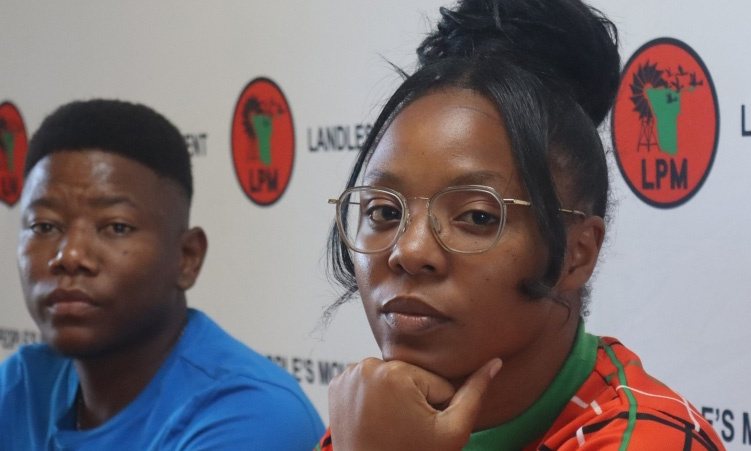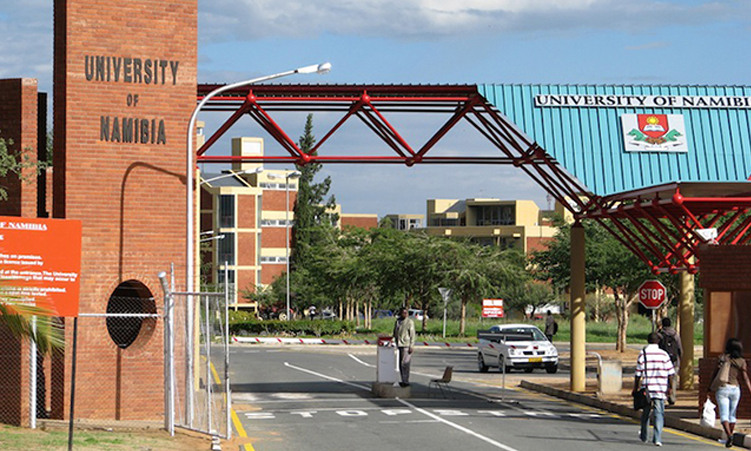The University of Namibia (Unam) has come under fire over their decision to ban political activism on campus, with some political parties saying the decision has the potential to stifle students’ constitutional rights to align, support and air their political views.
The university caused a stir when it banned the Affirmative Reposition (AR) Student Command from hosting their planned meeting on campus last week.
The decision by the university has drew backlash from different political parties, while analysts feel the issue should be treated with fairness and balance between freedom of association and policies governing the institution.
The Landless People’s Movement (LPM) Student Command has demanded Unam’s pro vice chancellor for finance, administration and resource mobilisation, Ellen Namhila, to revoke the directive to ban political activities on the university’s campuses.
LPM’s Youth Command Element Khomas leader, Junia Kaindjee, expressed his disappointment in the directive, describing it as a violation of constitutional rights and academic freedom.
“The Namibian Constitution grants all citizens, including students and academics, the right to peaceful political activities under article 17,” he says, adding that Unam has a history of hosting political events.
Kaindjee said there is no reason to issue such a directive since there is a peaceful political atmosphere at Unam.
In a letter seen by The Namibian, Namhila urged Unam management to take proactive measures to ensure that facilities and venues are not utilised for political campaigns, recruitments or activities.

Unam’s spokesperson, Simon Nameso, says the university is studying the matter.
“The University of Namibia takes note of the press release issued by the LPM Youth Command. We will provide further comments on this matter at a later time,” he says.
Meanwhile, the Namibia National Students Organisation (Nanso) agrees that the university is violating the constitutional rights of students to practise their political rights which extends to campus grounds.
Nanso president Dorthea Nangolo says students should be allowed to exercise their rights fully, for as long as they act within the policies and regulations of the university.
“You have youth leagues of various political parties. It does not make sense to limit these parties from participating in political activities,” she says.
Nangolo says this year is crucial because of the upcoming national elections, hence it is worrisome to limit students’ democratic rights by not allowing them full participation.

“We have engaged the student representative council and they have assured us they are consulting with management as we speak. Hopefully, through that they will be able to find an amicable solution that upholds students’ rights to political affiliation and allow registered political bodies to still continue with their mandates and carry out their work at an institutional level,” she says.
The AR Student Command was first to fall victim to the directive, as they were denied hosting their official opening on campus.
AR’s national spokesperson, George Kambala, says the directive undermines the rights of students to gather and associate with any political party or religion.
He says this is unfair treatment and that Swapo is being favoured over opposition parties.
“Just a day before we were stopped, Swapo’s student body had an event,” Kambala says.
“I implore them to refrain from doing it and to allow all students to participate fairly,” he says.
Political analyst Ben Mulongeni says there should be balance, for as much as there is freedom, it should be understood that there are policies too.
“For as long as we don’t allow universities to become political backgrounds, allow fights or be seen as taking sides, then activities should be allowed,” he says.
Mulongeni says universities are centres of excellence, because students should be taught and prepared for the future, as they are the future leaders.
Stay informed with The Namibian – your source for credible journalism. Get in-depth reporting and opinions for
only N$85 a month. Invest in journalism, invest in democracy –
Subscribe Now!






